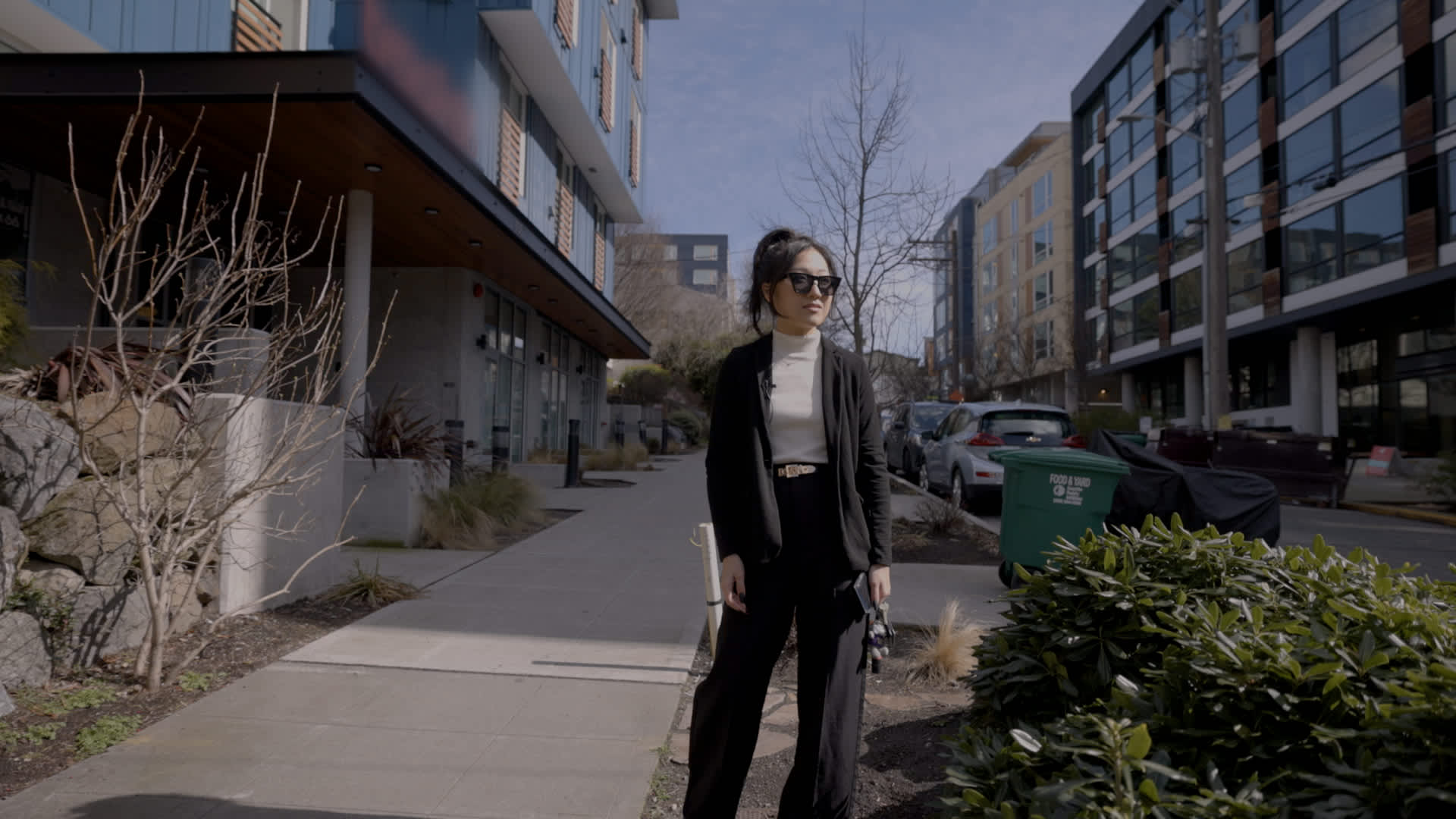Before Chi Baik moved into her 240-square-foot studio in Seattle last year, she tells CNBC Make It she
“didn’t even know they made apartments this tiny.”
The open layout of the 26-year-old’s “micro” studio is enough to fit her queen-size bed and a dresser, with space under the bed for storage and a bed for her dog, Bear.
Baik moved in September of 2022 and used to pay $1,550 for the place. Her building became income-restricted in January, and her rent was reduced in proportion to her earnings — about $27,000 a year from her Ph.D. funding and taking on extra grading work. She now pays $1,157 per month on rent, plus another $100 or so for utilities.
Chi Baik used to pay $800 to split a townhouse outside of Washington, D.C., with friends, but now spends $1,157 for 240-square-foot micro-studio in Seattle.
John Paget | CNBC Make It
Her kitchen has modern finish with a two-burner stove but no oven. Because everything is out in the open, she uses shelving for decor and two closets (including one with a washer/dryer in-unit) to keep everything tidy. Thankfully, a floor-to-ceiling window brings in natural light to make the place feel more roomy, and she also has a surprisingly large bathroom.
Last year, Baik left her job as a teacher outside the Washington, D.C., area — where she earned $60,000 per year and paid $800 to split a townhouse with friends — and moved to Seattle to become a Ph.D. student at the University of Washington, where she studies special education.
Money is tighter than it used to be, and it’s her first time living so far from friends and family. Still, “it feels like I’m starting a new chapter in my life, and I’m really excited for it,” she says.
Chi Baik enjoys the open layout of her studio, which features big windows, a closet with a washer/dryer in-unit, and a surprisingly roomy bathroom.
John Paget | CNBC Make It
Chi Baik moved to Seattle from the Washington, D.C., area in the fall of 2022. It’s her first time living so far from friends and family.
John Paget | CNBC Make It
Baik’s favorite thing about living in Seattle is being surrounded by nature and greenery, as well the experience of living on her own for the first time. She says her brother, who is two years older and lives in Philadelphia, encouraged her to make the big move and take on the challenging transition.
Baik knows most people will think $27,000 is “so little money,” but says “I feel very grateful that I’m making that much, that I have a home to live in, especially in Seattle. The unhoused population is really large, and that makes me even more grateful for the money that I am making.”
Depending on her spending for the month, Baik’s rent accounts for roughly 40% to 50% of her expenses. Her other major spending categories are food (she subscribes to HelloFresh and mostly cooks at home), shopping (for herself and for Bear’s pet supplies), and transportation (she’s currently without a car and uses both public transit and Uber to get around).
Baik doesn’t currently have any money left over at the end of the month to regularly put into savings, but she does have about $3,700 already stashed away and nearly $70,000 saved across two retirement accounts from her teaching days. Her brother recommended she put 30% of her paycheck toward retirement, which “wasn’t too hard” since she was coming straight out of college.
Chi Baik is getting her Ph.D. at the University of Washington in special education
Jon Paget | CNBC Make It
